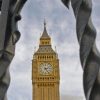The Spanish government and authorities in Madrid are locked in a standoff over how to tackle the second wave of Covid-19 in and around the capital, where more than a third of the country’s 716,481 cases have been diagnosed.
As the numbers of infections continues to surge in Spain – by far the worst hit western European country – Madrid is at the centre of a medical, political and economic row.
The conservative regional government has placed 45 areas into a partial lockdown that affects just over a million people in Madrid, but it has rejected calls from Spain’s socialist-led coalition government for the whole of the capital to be placed in limited confinement.
On Saturday, the national health minister, Salvador Illa, issued another call for a city-wide lockdown and urged the Madrid authorities to “listen to the science” and put aside politics.
“We’re very worried about the situation in the Madrid region, where there’s a serious healthcare risk not only for the people there, but also those in neighbouring regions,” said Illa.
“It’s time for proper action and to take control of the pandemic in Madrid with the aim of flattening the curve.”
Illa has said that towns and cities with more than 500 cases per 100,000 people should go into lockdown. By Friday evening, the Madrid region had recorded 721.73 cases per 100,000 people over the preceding fortnight.
The average across Spain is 319.9 per 100,000 people. Over the past two weeks, the UK has recorded 96.2 cases per 100,000 people, France 229.1, and Belgium 160.7.
But the regional government, led by Isabel Díaz Ayuso, of the conservative People’s party, is refusing to implement the recommended lockdown.
The regional justice minister said there was no need for a “healthcare intervention” from the central government, adding that the regional authorities were exercising their healthcare powers “responsibly and with good judgment”.
Ayuso is desperate to avoid another major lockdown and the attendant economic damage. She also questioned the need to extend the national lockdown in May, saying: “People get run over every day but that doesn’t mean we ban cars.”
According to reports, Ayuso has said Madrid will go into lockdown only if every Spanish town and city that met Illa’s criteria follows suit – and if the central government guaranteed Covid tests at Madrid’s Barajas airport and at the region’s rail stations.
As protests have flared up in poor neighbourhoods where many feel unjustly confined, doctors have said urgent measures are needed before Madrid’s intensive care units (ICUs) begin to collapse. At the moment, 40.12% of its ICU beds are occupied by patients with Covid, and some hospitals are already operating beyond their capacity. The average Covid ICU occupancy across Spain is 17.17%.
The average number of new cases reported each day is now higher than at the first peak of the virus at the end of March, when Spain logged 9,222 new cases in a single day. Much of the increase is due to massively increased testing – to date, Spain has carried out more than 8.5 million Covid tests.
The death rate is much lower than it was six months ago, when 849 deaths were reported in a single day. But the figures are climbing, with 475 deaths recorded over the week to last Friday.
On Friday, Yolanda Fuentes, who resigned as Madrid’s public health director in May following disagreements with Ayuso’s administration, posted a clip on Twitter from the 1997 film Titanic. The video, which shows the captain walking around his sinking ship while the string quartet plays on deck, was accompanied by the hashtag #BuenaSuerta (Good luck).
The Spanish government declined to comment on reports that it was preparing to intervene in Madrid. On Sunday, the country’s foreign minister said Spain was acting “as the canary in the coalmine” for the rest of Europe because it had relaxed restrictions earlier than its neighbours.
“A lot of my opposite numbers in other countries are asking me what we’re doing because they’re seeing the figures getting worse in their countries, too,” Arancha González Laya told El Confidencial.
“The infection rate goes up when you open space for freedom of movement. It’s higher in Spain than in other countries, maybe because we opened up earlier than other and gave ourselves less time between the de-escalation and re-opening measures.”























































Свежие комментарии